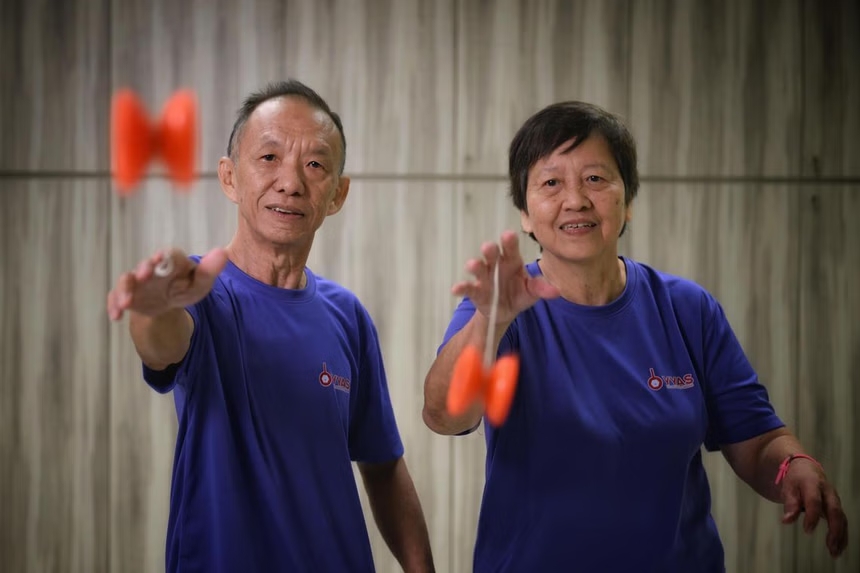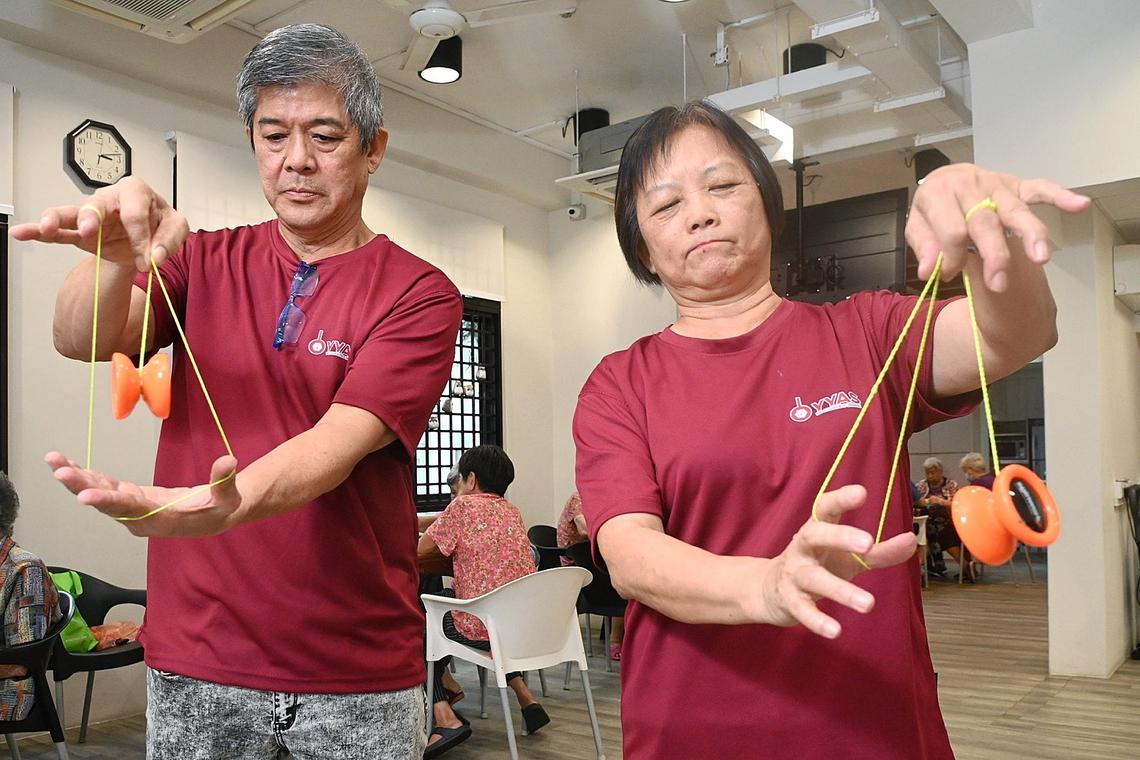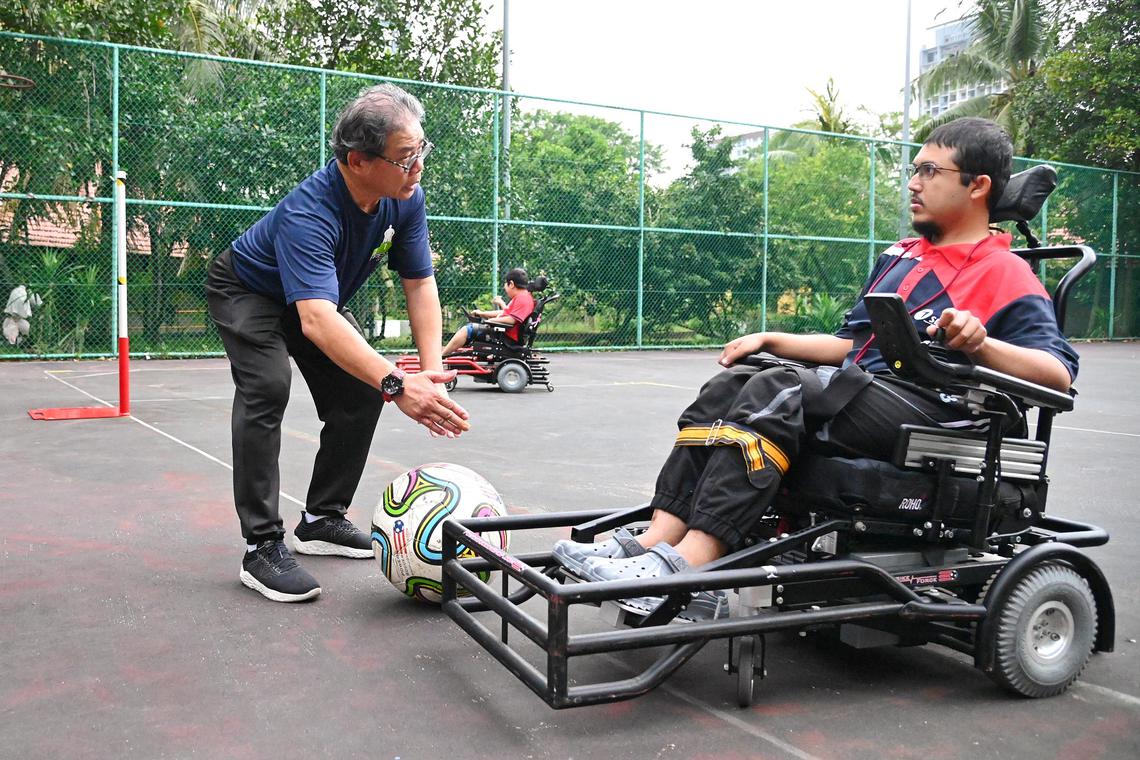SINGAPORE (ANN/THE STRAITS TIMES) – As you plan your New Year’s resolutions for 2025, why not consider picking up a new hobby? Whether it’s mastering yo-yo tricks, stepping into a group dance class, or exploring the art of handicrafts, the possibilities are endless.
The key is to find something that not only sparks joy but also keeps you engaged over time. Experts agree that the most rewarding activities are those you can enjoy regularly, as long as they bring a sense of fun and fulfilment.
Clinical psychologist Liew Shi Min explains why: “Physical activities help to release feel-good hormones such as serotonin and dopamine. Expressive hobbies such as painting and journaling release our emotions healthily in a cathartic manner.”
Arts and crafts promote mindfulness, as such projects require repetitive movements and focus. The increased sensory stimulation from seeing colours or working with different textures also promotes calmness, adds Ms Liew, the founder and director of Heartscape Psychology.
However, not all diversionary activities are healthy, she says. Passively scrolling videos and watching Netflix are not helpful hobbies.
Dr Zheng Zhimin, consultant psychiatrist from Nobel Psychological Wellness Centre, says watching content on screens is a passive process not very different from a person’s usual work or academic routine.
Hobbies should be a break from the grind and require you to be present and engaged, she adds.
So, how do you choose the right hobby?

Look to increase well-being
Ms Liew suggests asking yourself questions about your preferences. Do you prefer creative, mental or physical pursuits? What stimulates your curiosity, what would make you happy? Do you have fun doing solo activities, or do you prefer to be with a companion or a group?
Finding the right hobby can be a struggle, but Ms Liew says to keep experimenting with things, and check in with yourself afterwards. Reflect on this: “How do I feel before, during and after engaging in the hobby? Does it align with my goals and resources? Am I in control of my engagement and time with my hobby? Is it benefiting or harming my relationships?”
Hobbies should make you feel better, and they should not distract you from healthy routines.
“We can tell that a hobby is healthy for us when it generates positive health outcomes and psychological growth,” says Ms Liew. “For instance, we would feel recharged, stronger, fulfilled, relaxed or happy. Also, we would be able to regulate our emotions better.”
Give yourself permission to play
Dr Zheng says it is surprisingly hard to get people to take up hobbies. “Even children and teenagers struggle to think of activities they may want to do for fun. It is almost as though we have forgotten how to have fun.”
She spends a lot of time convincing patients to relax and have fun. She helps them decide on fun activities based on their interests.
Lowering the barriers to entry can help. “Activities that do not require excessive equipment or having to go out of the house may be more palatable for some,” she says.
“Not everyone likes to go for a run, but some may enjoy gardening, which is also physically engaging. As long as the activity is different from your usual routine, and provides some level of output, it is a worthwhile hobby to engage in,” she adds.
By output, Dr Zheng means a creative end-product. “Hobbies that result in output increase our sense of productivity and achievement,” she says, giving craft projects as an example.
“Such ‘win’ moments increase our self-confidence and are especially important for children to build self-esteem. This is why it is especially important for children to have hobbies outside of school.”

Fun is important at every age
Research shows that hobbies can improve your health and satisfaction with life, reduce stress and help build social connections.
Dr Zheng says: “The main goal is to just have fun. When you feel good, the secondary goals will be achieved naturally, such as reducing anxiety, boosting cognition or improving sleep.”
This is true at all ages. A 2023 study published in the journal Nature found that across 16 nations, people aged 65 and older who engaged in hobbies were less likely to be depressed than peers who did not.
Bringing fun to older people is the heart of Lien Foundation’s Seniors Go! programmes, which introduce seniors to new hobbies. Since 2022, six cohorts of seniors have tried activities such as indoor climbing, e-sports, making music, creating influencer videos and learning magic tricks.
In 2024, 42 seniors from three active ageing centres (AACs) spent 11 weeks learning yo-yo tricks before showcasing their skills in October at Changi Simei CC.
All Seniors Go! programmes end with a showcase of the participants’ new skills. As Lien Foundation executive producer Michelle Chua says: “Everyone thrives when challenged, seniors included.”
The thought of a showcase motivated retired engineer Pek Kim Hoe to practise the yo-yo diligently over weeks of lessons at THK Active Ageing Centre @ Cassia, which is under Thye Hua Kwan Moral Charities.
“I enjoyed it. We got to know other participants and mixed with younger people,” the 67-year-old says.
He did the yo-yo course with his wife, retired factory worker Tan Siew Noi. They have a grown son.
Mr Pek still practises with the toy, while Madam Tan, 64, prefers her routine of doing Zumba and other exercise classes at the AAC.
She is keen to sign up for new experiences, however. “When you’re retired, you have nothing to do. Luckily, the centre has many programmes.”
Another couple who learnt the yo-yo together are Mr Tan Boon Guan, 69, and Madam Kwek Siew Noi, 68, both of whom used to work in the food and beverage industry. They have a grown son and daughter.
Husband and wife told The Straits Times that they bond through doing activities together at Fei Yue Active Ageing Centre (Hougang) and took up the yo-yo as a fun challenge.
Mr Tan says: “We don’t compete with each other. I help her when she doesn’t know the moves.”
Madam Kwek smiles and agrees: “It’s good to have a companion to learn together.”

Satisfaction and social connections
Engaging in hobbies with friends and loved ones can deepen your relationships. Group hobbies such as sports can also lead to new friendships and social connections.
Racket sports are increasingly popular in Singapore. Mr Ashwin Gowrishankar, country commercial director for sporting goods retailer Decathlon, says badminton goods were a top-selling category in 2024, and that other racket sports, like pickleball and padel, look to be among the 2025 bestsellers.
“Pickleball is fun and easy to learn, even for those unfamiliar with racket sports, making it accessible to people of all ages and skill levels,” he says. “Padel is one of the fastest rising sports internationally, and we see the same trend in Singapore, with more players getting into the sport and more padel courts being set up.”
If you cannot find a sporting partner, another way to socialise could be as a sporting volunteer. National agency Sport Singapore’s volunteer movement, Team Nila, trains and fields volunteers in various roles, including as liaisons with visiting players or even as coaches.
One such volunteer is 63-year-old Daniel Lee. The owner of an interior design business runs and does callisthenics twice a week for his health. Through Team Nila and the Singapore Disability Sports Council, he also acts as a coach for powerchair football, where players use electric wheelchairs, or powerchairs, to play a modified version of soccer.
Mr Lee, who coached wheelchair rugby from 2016 to 2023, now volunteers at least twice a month to coach powerchair footballers from the Muscular Dystrophy Association (Singapore) (MDAS).
Volunteering is a way to pursue his passion for contact sports, now that he is too old to engage in such activities.
He also finds it fulfilling to see players build up their confidence and self-esteem through sport. “They come in and say, ‘I can’t do it’, but after some practice and encouragement, they can. It gives me satisfaction to see them come back.”
One of his regular players, freelance graphic designer Muhammad Saifudeen Abdul Salim, says powerchair football practice helps him maintain his health and is also a welcome outing. MDAS arranges transport for him and other players twice a week for practice.
Mr Saifudeen, 27, has Duchenne muscular dystrophy, which leads to muscle weakness and the inability to walk. He adds that art lessons at MDAS, involving watercolours and other tactile media, are important to his well-being, as is watching anime such as the popular show One Piece (1999 to present).
“Art is for showcasing my emotions, sport is for exercise, and anime makes me happy. These are all important hobbies for me,” he says.


